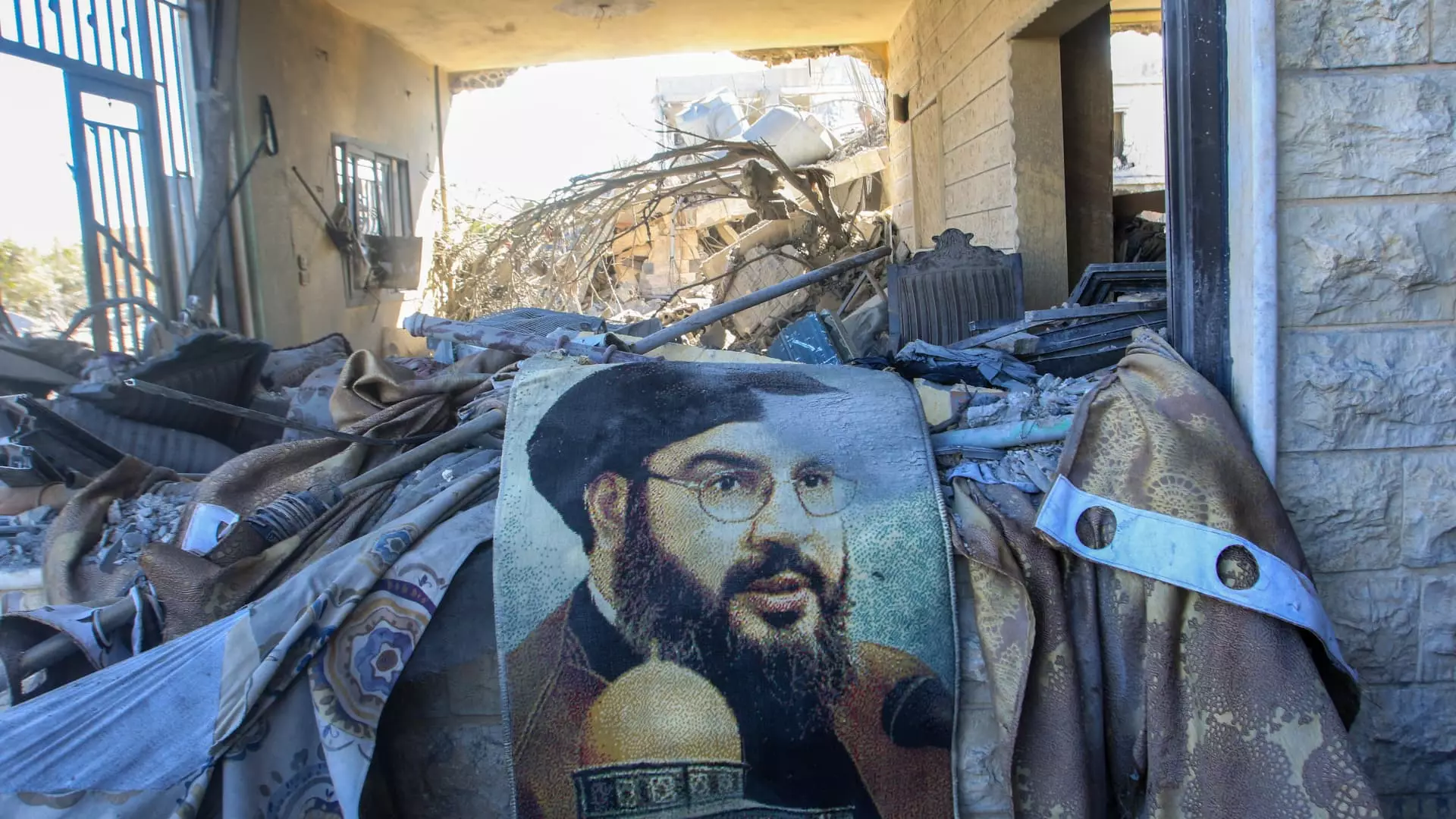On Saturday, the Israeli Defense Forces (IDF) made a shocking announcement: Hassan Nasrallah, the longstanding leader of Hezbollah, had been killed in a targeted airstrike on the group’s headquarters in Beirut. This report, confirmed by IDF spokesperson Lt. Col. Nadav Shoshani through social media, signifies a watershed moment in the Lebanese political landscape and the wider regional dynamics that have long been shaped by both Hezbollah and Israel. The implications of Nasrallah’s demise could reverberate beyond Lebanon’s borders, instigating shifts in alliances and conflicts that have defined Middle Eastern politics for decades.
The assassination of individuals in positions of power undeniably has profound consequences. Analysts like Ronnie Chatah assert that Nasrallah’s death would represent an irreparable psychological blow to Hezbollah. For over thirty years, Nasrallah has been a central figure not just within Hezbollah but across various factions in the Middle East, portraying the organization as a formidable force against Israeli military efforts and Western intervention. His leadership since 1992 has redefined Hezbollah, transforming it from a local resistance group to the world’s most advanced non-state military actor, intricate in its socio-political strategies and influence.
The Regional Power Vacuum
The immediate effect of Nasrallah’s assassination might create a vacuum within Hezbollah, a group that has long benefited from his iron-fisted leadership. Political analysts have posited that even if Hezbollah remains intact organizationally, it will likely face a multitude of challenges in navigating a post-Nasrallah reality. This power shift could position Hezbollah in a state of uncertainty and internal struggle, affecting its unity and operational efficiency.
Furthermore, Hassan Nasrallah represented a powerful symbol for Iran’s influence in the region. His absence could catalyze heightened tensions between Israel and Iranian proxies throughout the Levant. Firas Maksad from the Middle East Institute points out that Nasrallah was emblematic of Iran’s regional presence, suggesting that his assassination might usher in new confrontations between local actors and external powers vying for dominance in this politically fragmented landscape.
The implications for domestic Lebanese politics are equally critical. Nasrallah was not only an influential leader in Hezbollah but also a key figure within Lebanon’s Shia community. His killing raises pivotal questions about the future power dynamics among Lebanon’s sectarian groups—an intricate tapestry where sectarian allegiances often dictate political affiliation. The Schismatic sectarian structure of Lebanese politics could experience exacerbated polarization and instability in the wake of this incident.
Hezbollah’s diminishing influence could inadvertently empower rival factions, making the Lebanese political arena more fragmented and prone to unrest. The historical sectarian tensions within Lebanese society may evolve further, complicating any attempts to foster unity or implement reform within its frail governance system. The fragility of government in Lebanon has been highlighted in recent years, and Nasrallah’s death could serve as a catalyst for exacerbating existing societal divisions.
Beyond the immediate context of Lebanon, the assassination of such a pivotal figure could lead to modifications in broader regional alliances. As nations recalibrate their positions in light of Nasrallah’s death, we may witness shifts in regional strategies among various state and non-state actors alike. The ongoing tensions between Iran and Israel are likely to intensify, with both actors re-evaluating their military and political strategies in a rapidly changing environment.
The potential ramifications can extend to various other countries in the region, altering security dynamics as external powers—both western and regional—reevaluate their approaches and alliances in light of this significant shift. With a growing history of conflict between Israel and Iran’s proxies scattered throughout the region, the potential for a renewed cycle of violence looms large.
Hassan Nasrallah’s death marks not only the loss of a significant figure within Hezbollah but also raises numerous questions about the future of Lebanon and the broader Middle Eastern geopolitical landscape. While the immediate impact may be felt within Hezbollah, the consequences of this pivotal moment will likely extend far beyond national borders, affecting an already volatile region marked by deep sectarian divisions and ongoing conflicts. The road ahead remains uncertain; however, it is clear that this event will shape the narrative of Middle Eastern politics for years to come.

Leave a Reply